 July 2024 in “Journal of Dermatology Research Reviews & Reports”
July 2024 in “Journal of Dermatology Research Reviews & Reports” Stem cell therapy shows promise for treating hair loss by promoting hair growth.
 July 2024 in “Forum Dermatologicum”
July 2024 in “Forum Dermatologicum” Topical treatments for hair loss can be effective but need careful safety evaluation.

Blocking the Mitochondrial Pyruvate Carrier causes stress in hair follicles, which can be reduced by an ISR inhibitor.
 January 2024 in “Journal of Pharmacognosy and Phytochemistry”
January 2024 in “Journal of Pharmacognosy and Phytochemistry” Rosemary hair serum promotes healthier, stronger, and shinier hair.

Black hair's diversity in patterns and textures is influenced by follicle shape and keratin, and it holds cultural, artistic, and mathematical significance.

Dermatologists need better training on Black hair to improve care and outcomes.
 November 2023 in “Deleted Journal”
November 2023 in “Deleted Journal” Cedrus libani has potential medicinal uses but needs more safety studies.

A rare case of a woman having both lichen planus pigmentosus and classic lichen planopilaris at the same time.
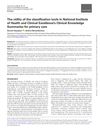 September 2023 in “Family practice”
September 2023 in “Family practice” Nearly half of the classification tools in the National Institute of Health and Clinical Excellence's Clinical Knowledge Summaries might not effectively guide management for general practitioners.
 May 2023 in “Archives of dermatological research”
May 2023 in “Archives of dermatological research” Some factors like thyroid disease, diabetes treatment, hair dryers, natural hairstyles, and scalp conditions can affect the treatment results for a hair loss condition called CCCA.

There are many treatments for common hair loss, but more trials are needed to decide which are best.
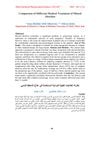 April 2023 in “Tikrit Journal of Pharmaceutical Sciences”
April 2023 in “Tikrit Journal of Pharmaceutical Sciences” Deferasirox effectively reduces iron overload in ß-thalassemia patients but may cause some manageable side effects.
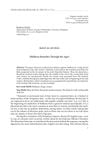 January 2023 in “Acta historiae medicinae, stomatologiae, pharmaciae, medicinae veterinariae”
January 2023 in “Acta historiae medicinae, stomatologiae, pharmaciae, medicinae veterinariae” Historical baldness remedies were varied and often based on superstition.
 December 2022 in “Journal of Tropical Pharmacy and Chemistry”
December 2022 in “Journal of Tropical Pharmacy and Chemistry” The hair tonic made from oil palm leaf extract is very effective in preventing hair damage from the sun.
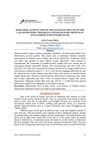 October 2022 in “Asian journal of healthy and science”
October 2022 in “Asian journal of healthy and science” Mother-in-law's tongue leaf extract at 20% concentration significantly promotes hair growth in male rabbits.
 September 2022 in “KnE medicine”
September 2022 in “KnE medicine” Higher candle nut oil concentration increases droplet size and changes the hair tonic's properties and stability.
 September 2022 in “International journal of pharmaceutical quality assurance”
September 2022 in “International journal of pharmaceutical quality assurance” The herbal shampoo is less damaging and improves hair's appearance.
 August 2022 in “International journal of research in pharmacy and chemistry”
August 2022 in “International journal of research in pharmacy and chemistry” Teak is a durable, termite-resistant wood with medicinal benefits.
 July 2022 in “SKIN The Journal of Cutaneous Medicine”
July 2022 in “SKIN The Journal of Cutaneous Medicine” A new lotion with halobetasol and tazarotene successfully treats acne keloidalis nuchae.
 August 2021 in “Journal of Fundamental and Applied Pharmaceutical Science”
August 2021 in “Journal of Fundamental and Applied Pharmaceutical Science” Black tea extract at 5% concentration promotes the most hair growth.
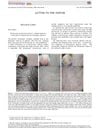 July 2021 in “Australasian Journal of Dermatology”
July 2021 in “Australasian Journal of Dermatology” The trichoscopy-assisted hair pull test is useful for diagnosing different types of hair loss.

People with androgenic alopecia are more likely to have metabolic syndrome than healthy individuals.

Different scalp and hair disorders are more common in certain ethnic groups, with the most common being androgenetic alopecia, which is treated with medications like minoxidil and finasteride.
 November 2017 in “Asian journal of pharmaceutical and clinical research”
November 2017 in “Asian journal of pharmaceutical and clinical research” Three compounds from Dadap leaves may help treat hair loss.
 January 2017 in “Elsevier eBooks”
January 2017 in “Elsevier eBooks” The Christ’s Thorn Jujube tree has many uses, including medicine, food, and industry, due to its beneficial properties.
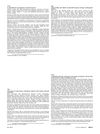 May 2015 in “Journal of The American Academy of Dermatology”
May 2015 in “Journal of The American Academy of Dermatology” The algorithm can effectively diagnose different types of female hair loss with proper history, examination, and tests.
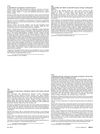 May 2015 in “Journal of The American Academy of Dermatology”
May 2015 in “Journal of The American Academy of Dermatology” Combination therapy with cyclosporine and low-dose corticosteroid shows favorable long-term results for treating alopecia areata.
 January 2015 in “Springer eBooks”
January 2015 in “Springer eBooks” Some alternative treatments may help with hair loss, but more evidence is needed to confirm their effectiveness.
November 2014 in “PharmaTutor” Finasteride may help postmenopausal women with hair loss but is not effective for all and should be used cautiously in premenopausal women.
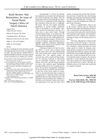 August 2014 in “Annals of Plastic Surgery”
August 2014 in “Annals of Plastic Surgery” The book is a detailed guide on hair restoration, useful for both new and experienced surgeons.





























